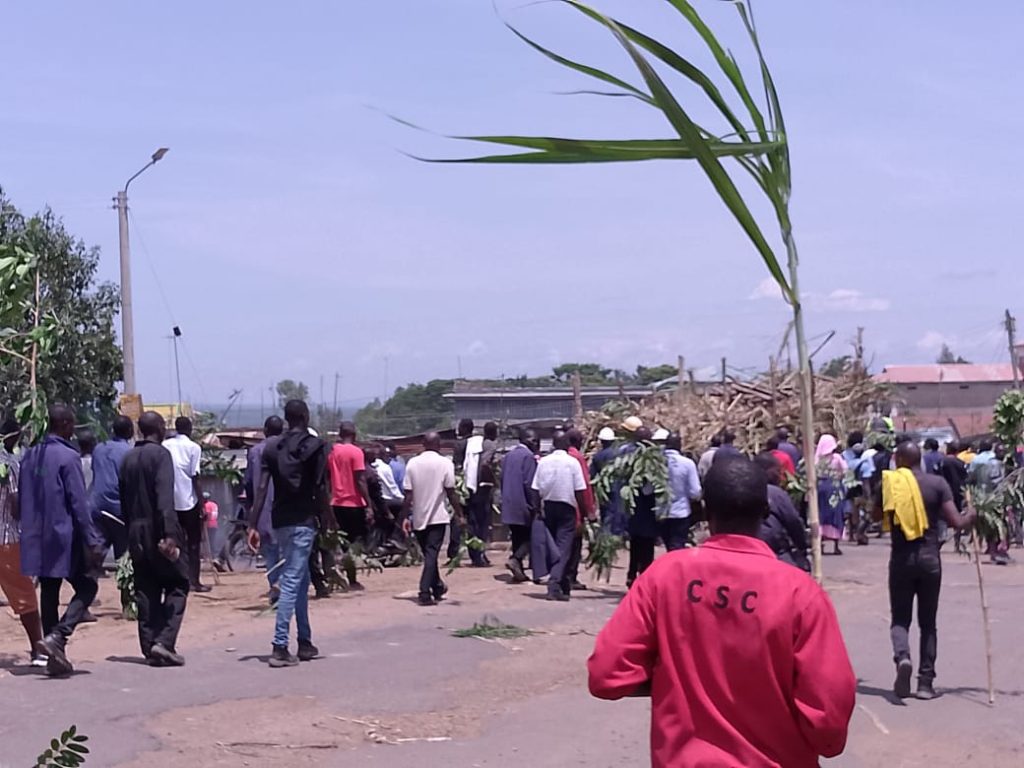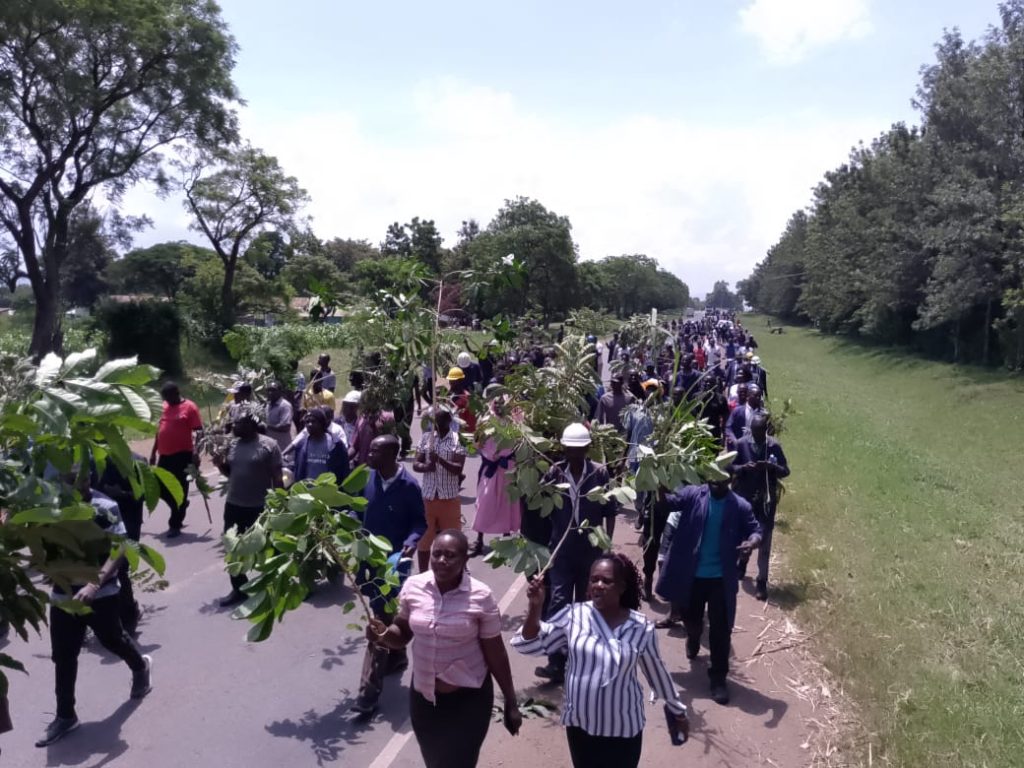Chemelil Sugar Factory workers have taken to the streets in a bold protest against the controversial leasing agreement that has handed control of the factory to Kibos Sugar and Allied Companies. The workers, enraged by the sudden changes, argue that the deal threatens their financial security and basic rights.
Chanting slogans and waving placards, the striking employees vowed to resist the move, calling it a direct assault on their livelihoods. “We will not allow this to happen. This factory is our lifeline,” declared one worker, reflecting the mounting fear and frustration among the employees.
The anger stems from several unresolved grievances, chief among them being the failure to pay salary arrears. Many workers have endured months without payment, barely managing to make ends meet. To add to their despair, the new lease agreement has introduced drastic salary cuts, slashing wages to a mere 45% of their current earnings—an unacceptable reduction, they argue, given the rising cost of living.
As if the wage cuts weren’t enough, the proposed deal also seeks to abolish the workers’ union, a move seen as an attempt to silence collective bargaining and eliminate employee protections. “This is a life-threatening issue,” lamented another worker. “We are already struggling. This will push us deeper into hardship.”


For years, Chemelil Sugar Factory has been a beacon of employment and economic stability for its workforce. Now, uncertainty looms as workers grapple with the implications of privatization, fearing exploitation under corporate control.
Government authorities and company representatives have yet to address the workers’ concerns, further fueling the sense of betrayal. As the strike continues, the employees remain firm in their demands, calling for the full restoration of their salaries, union rights, and a fair resolution to the leasing controversy.
The unfolding protests serve as a powerful reminder of the ongoing struggle between labor and corporate interests, raising questions about worker protection in Kenya’s evolving economic landscape.
Written by, Laban Shikokoti.









